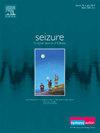瑞典德雷维特综合征患儿近亲年龄兄弟姐妹的父母反映的心理健康状况。
IF 2.7
3区 医学
Q2 CLINICAL NEUROLOGY
引用次数: 0
摘要
目的:评估德雷维特综合征(Dravet Syndrome,DS)患儿的最近年龄兄弟姐妹的父母报告的心理健康状况:在这项观察性研究中,31 名儿童(3-16 岁;18 名男性和 13 名女性)的父母填写了德雷维特综合症儿童最近年龄兄弟姐妹的实力和困难问卷(SDQ)。心理健康水平根据有效标准确定;异常≥90百分位数/边缘≥80百分位数。高危状态被视为边缘/正常。数据采用描述性和线性回归分析。显著性水平为 p <0.05:只有五个兄弟姐妹(16%)的 SDQ 总分升高。然而,32%的兄弟姐妹在情感分量表上有困难,26%的兄弟姐妹在同伴分量表上有困难。只有一名儿童(3%)在表示优势的 "亲社会 "分量表上得分较高。回归分析未发现与 SDQ 总分有任何显著关联:DS 儿童的兄弟姐妹似乎不会有更高的心理健康问题风险,但在情绪问题方面可能需要特殊支持。要更好地了解 DS 及其他发育性和癫痫性脑病患儿兄弟姐妹的经历,还需要进行更多的研究。本文章由计算机程序翻译,如有差异,请以英文原文为准。
Parent-Reported mental health in nearest age siblings of children with Dravet Syndrome in Sweden
Purpose
To assess parent-reported mental health in nearest age siblings of children with Dravet Syndrome (DS).
Methods
In this observational study parents of 31 children (age 3–16 years; 18 males and 13 females) of nearest age siblings of children with DS completed the SDQ (Strength and Difficulties Questionnaire). Mental health level was determined using validated norms; abnormal ≥ 90 percentile/borderline ≥80 percentile. At risk status was considered borderline/abnormal. Data were analysed using descriptives and linear regression. Significance level was p < 0.05.
Results
Only five siblings (16 %) had elevated scores on the SDQ total score. However, 32 % of siblings had difficulties on the Emotional subscale and 26 % on the Peer subscale. Only one child (3 %) had an elevated score on the Prosocial subscale which indicates strengths. Regression analysis did not find any significant associations with the SDQ total score.
Conclusions
Siblings of children with DS would not appear to have a higher risk of mental health problems but specific supports may be needed regarding emotional problems. More research is needed to better understand the sibling experience in children with DS and other Developmental and Epileptic Encephalopathies.
求助全文
通过发布文献求助,成功后即可免费获取论文全文。
去求助
来源期刊

Seizure-European Journal of Epilepsy
医学-临床神经学
CiteScore
5.60
自引率
6.70%
发文量
231
审稿时长
34 days
期刊介绍:
Seizure - European Journal of Epilepsy is an international journal owned by Epilepsy Action (the largest member led epilepsy organisation in the UK). It provides a forum for papers on all topics related to epilepsy and seizure disorders.
 求助内容:
求助内容: 应助结果提醒方式:
应助结果提醒方式:


